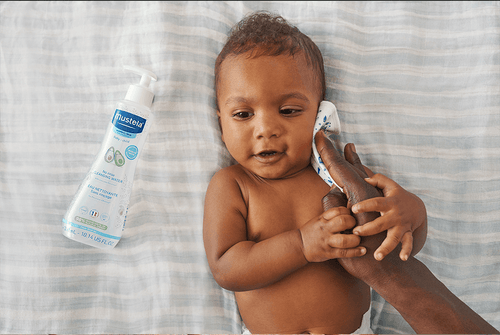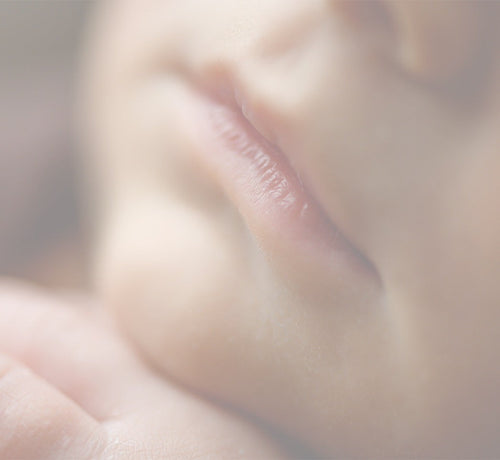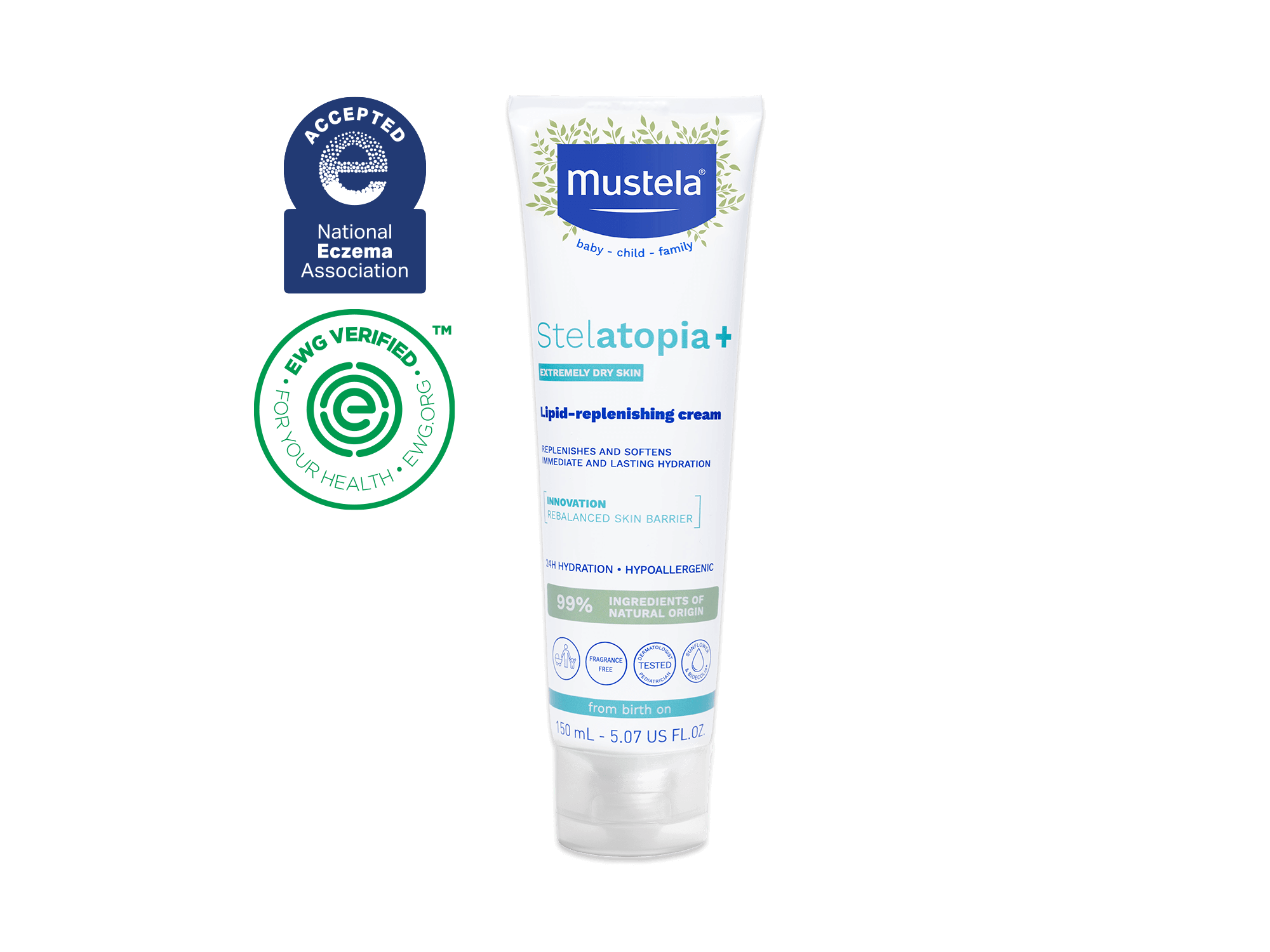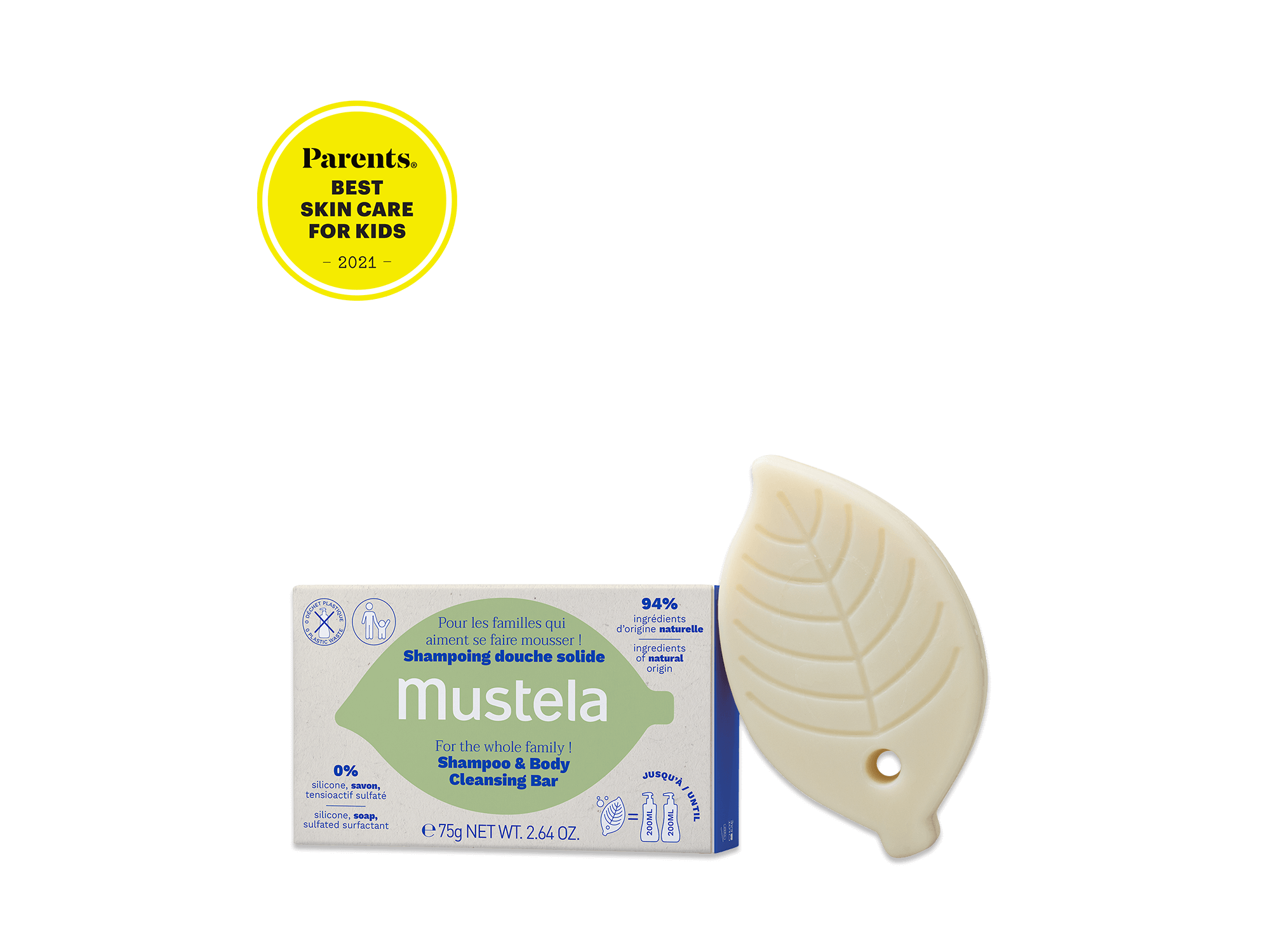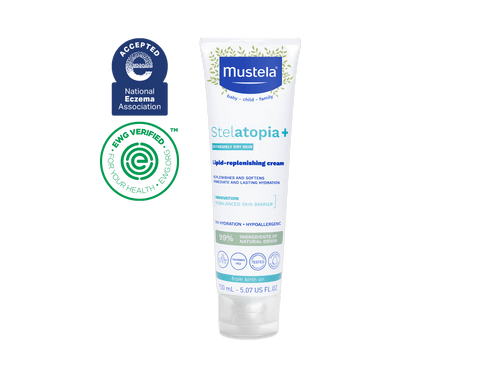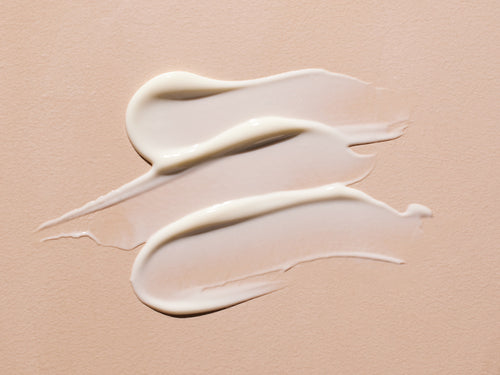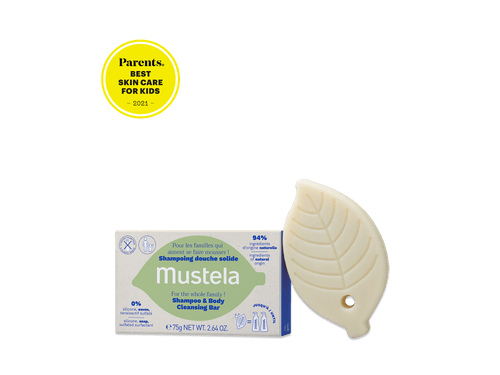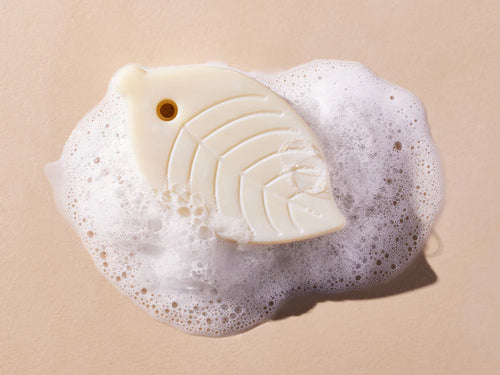Your newborn’s features are all so perfect and delicate — including their rosy, little lips. But it’s not unusual for your baby to develop chapped lips. While this typically resolves on its own, you’ll want to know what to do to keep your little one comfortable in the meantime.
In this article, we’ll discuss what causes chapped lips in newborns and babies and what you can do to naturally and gently treat and prevent dry lips.
Table Of Contents
- Why Baby Chapped Lips Are So Common
- Signs Of Newborn Chapped Lips
- Causes Of Newborn Chapped Lips
- Treating And Preventing Chapped Lips In Newborns
- Treating And Preventing Chapped Lips In Older Babies
- Gentle, Natural Care For Your Baby’s Chapped Lips
Why Baby Chapped Lips Are So Common
The skin on your little one’s lips is very thin and doesn’t have all of the oil glands that the rest of their skin has.
That may sound like a good thing since adults spend a major portion of their time trying to get rid of excess oil on their skin. But that oil is actually a big part of what keeps your skin healthy and hydrated.
Your skin’s natural oil forms a barrier that keeps hydration in and irritants out. The same is true for your baby’s skin and lips.
Since their lips don’t have a very strong oil barrier — just like yours — the skin there can become irritated and dry very easily because the natural moisture escapes before their body can replace it.
When that happens, you may notice peeling, tightness, flaking, and other signs of baby chapped lips. And, if it gets too uncomfortable, your little one will certainly let you know.
Signs Of Newborn Chapped Lips
You’ve probably suffered from a case of chapped lips at some point in your life. When newborn chapped lips strike, it’s very similar.
Your baby’s lips may be cracked, red, and dry, and if you touch them, you might be able to feel the dry cracks. And, as with adult chapped lips, cracked lips can even bleed.
Let’s take a look at what can cause chapped lips on your little one.
Causes Of Newborn Chapped Lips
Chapped lips are typically caused by a lack of hydration on the inside or a lack of moisture on the outside. And that goes for both adults and babies.
To help you get to the bottom of what might be causing your newborn’s chapped lips, here are several common culprits.
Cold, Dry Air

The cold, dry air that strikes in the wintertime can be drying to your baby’s skin and lips, resulting in chapped lips. But it’s not just winter that can cause problems. Hot, dry climates can also be drying.
Friction From Nursing
In general, friction is drying. And since your baby does a lot of sucking to stay well-fed, the friction from nursing, using a pacifier a lot, or taking a bottle can contribute to chapped lips.
There’s also the possibility that your baby may develop a small blister on their lip caused by the friction of breastfeeding. These harmless blisters will usually disappear on their own, and you don’t need to worry.
But if your baby’s lip blister doesn’t seem to go away or keeps coming back, you’ll want to talk with your pediatrician or lactation consultant. It could be that your baby isn’t latching on properly or has a tongue or lip tie.
Sun Exposure
Just like hot, dry weather can dry out your skin and lips, lots of sun exposure can do the same.
However, sun exposure shouldn’t even be a concern for newborns. Until your baby is six months old, the safest option is to keep them out of direct sunlight entirely. The delicate, vulnerable skin of a newborn isn’t ready for the strong rays of the sun.
If something happens and your little one does spend time in the sun, keep in mind that this sun exposure could result in chapped lips.
Once your baby is over six months old and you start venturing out for sunny adventures, remember to apply a safe, effective baby sunscreen, like our NEA (National Eczema Association) Certified SPF 50 Mineral Sunscreen Lotion.
This fragrance-free mineral sunscreen uses zinc oxide to ward off the rays of the sun and is made with 93% ingredients of natural origin per ISO 16128 standard, including coconut oil, macadamia oil, and vitamin E.
Approved by the Skin Cancer Foundation, our sunscreen is easy on sensitive skin and safe enough for the littlest ones in your family yet effective enough for adults, providing water-resistant protection for up to 80 minutes.
Drooling And Lip-Licking

Lip-licking, and drooling can also lead to newborn chapped lips because the saliva evaporates from their lips, drying them out in the process.
Mouth Breathing
Newborns breathe through their noses unless there is some reason they can’t, like a cold. In fact, if your infant is breathing through their mouth when they don’t have a stuffy nose, you should consult your pediatrician.
That said, if your baby is breathing through their mouth, it can result in dry, chapped lips.
Allergic Reactions
Your little one may have a sensitivity or allergy that shows as baby chapped lips — much like red, rashy, irritated skin elsewhere on their body.
The allergic reaction could come from adult lip balms, lipsticks, skincare products, or cosmetics that inadvertently rub off on your baby’s lips when you kiss them. The reaction could also come from a lotion or cream you apply to their face and hands.
Or, the allergic reaction could come from the blankets, clothes, or stuffed animals that find their way into or near your newborn’s mouth.
We know it’s nearly impossible not to kiss your beautiful baby, but try planting some wet ones on their cheeks and forehead instead of their lips until the skin heals. Alternatively, you could make it a point to skip your skincare products for a while to see if that helps.
In regard to baby lotions and creams, always choose a hypoallergenic variety that is free of parabens, phthalate, silicone, and phenoxyethanol.
Our EWG Verified Soothing Moisturizing Face Cream is the perfect solution to this problem. Designed for babies and children with very sensitive, rashy, or reactive skin, our fragrance-free formula protects and relieves the sensitive skin on your baby's face.
Additionally, try our Multi-Purpose Balm with 3 Avocado Extracts on your baby’s lips. This EWG Verified formula is safe for newborns, babies, and children and is designed to nourish, repair, and protect skin from head to toe.
(Note: Reach out to your little one’s doctor in case of ingestion.)
And, finally, check the tags on your baby’s blankets, clothes, and stuffed toys to see what they’re made of.
If other troubleshooting methods haven’t revealed where the allergic reaction is coming from, switch out your little one’s blankets, clothes, and toys for some made with different materials.
Other Health Conditions
If you don’t see an improvement in your newborn’s chapped lips after a little TLC, ask your pediatrician if it could be caused by a health condition or nutritional deficiency. This is unlikely, but if your parental instinct tells you something is up, it’s worth calling the doctor.
You’ll also want to pay a visit to the pediatrician if your baby is showing symptoms of illness, isn’t comfortable nursing, or has signs of dehydration.
Knowing some of the potential causes of your newborn’s chapped lips, let’s get straight to what you can do to treat them and help prevent it from happening again.
Treating And Preventing Chapped Lips In Newborns
Dab Breast Milk On Chapped Lips

Your breast milk is loaded with everything your baby needs to stay nourished. In addition to all of the nutrients that it contains, it also has antibacterial properties. This means that your breast milk can help heal your baby’s chapped lips.
All you have to do is dab a bit of milk onto your little one’s lips to provide natural protection and moisture. And it’s easy since you’ve always got breast milk on hand!
We also recommend dabbing a bit of healing breast milk onto your own breasts in the case of cracked nipples. Or opt for our Nursing Comfort Balm to help protect your nipples and ease discomfort.
Run A Humidifier
Since chapped lips can result from dry air, try running a humidifier in your home or in your baby’s nursery. This will pump much-needed moisture into the air and help hydrate your baby’s lips and skin from the outside in.
Note: If there’s any chance that your little one or your pet could access the humidifier and tip it over, be sure to use a cool-mist setting.
Apply Nourishing Stick With Cold Cream
When you see your newborn’s chapped lips, you might be tempted to apply a bit of lip balm to them. However, with such a little baby, you must be very careful about what you apply to their lips since they could easily ingest whatever it is.
So, don’t whip out your adult lip balm to use on your baby. Instead, apply a product designed specifically for little ones, like our Nourishing Stick with Cold Cream.
This travel-friendly moisturizer provides heavy-duty protection to relieve your baby’s dry lips and cheeks.

Composed of 96% ingredients of natural origin per ISO 16128 standard, our formula contains natural Cold Cream, lipid-replenishing ceramides, softening and soothing shea butter, and avocado perseose, a patented natural ingredient to help protect your baby's delicate skin.
And, like all Mustela products, it’s free of parabens, phthalates, and phenoxyethanol.
Wrap Up Before Going Outside
When you head outside during the cold winter months, be sure to wrap your little one up! Protect them from the cold air by covering their delicate skin with a coat, scarf, hat, and the like.
Just make sure their little nose is free to breathe easily! You can also cover their stroller with a light blanket to provide even more protection from the elements.
A great way to specifically protect their lips before venturing outside is to apply the Nourishing Stick that we just mentioned. This rich moisturizer glides on gently and forms a protective barrier against environmental factors, like cold air and wind.
Feed Your Baby Regularly
As important as it is to protect and moisturize your baby’s lips from the outside, it’s also essential that your baby is well-nourished and hydrated on the inside.
Since your baby’s only source of nourishment for the first few months is either breastmilk or formula, keep up regular feedings! If your little one is producing fewer wet diapers than usual or you have any other concerns that your baby may be dehydrated, call your pediatrician.
Treating And Preventing Chapped Lips In Older Babies

Treating and preventing your baby’s chapped lips involves many of the same steps as for newborns. But because your child is older (more than six months), you have more options.
Talk To Your Doctor
The first step in treating and preventing baby chapped lips is to talk to your doctor. They can let you know the right course to take — or the right products to use — to clear up the dry skin and help your baby feel better faster.
Limit Pacifier Use
When your little one sucks on a pacifier, they’re mimicking the action of breastfeeding. And, as we mentioned in the Causes Of Newborn Chapped Lips section, friction from nursing is one of the most common reasons your baby will develop dry lips.
Similarly, that same nursing action causes an increase in saliva production and can lead to drooling and lip-licking (which is another cause of chapped lips).
We know it’s the last thing many parents want to hear, but, if your baby develops chapped lips that don’t seem to clear up on their own, try limiting pacifier use.
That doesn’t mean you have to do away with the pacifier completely. Instead, save it for emergencies, and take this as an opportunity to wean your little one off this habit (which you were going to have to do eventually anyway).
Apply Safe Sunscreen Around Chapped Lips

For babies over six months old, try applying a baby-safe sunscreen on the skin around their lips. Doing so can help maintain the moisture in those areas so the skin doesn’t get dry and pull the natural oils and hydration away from the lips.
We recommend our SPF 50 Mineral Sunscreen Lotion for this purpose — and for all over your little one’s body!
Our sunscreen is strong enough to protect your baby’s delicate skin, and it’s formulated without chemical UV filters such as oxybenzone, avobenzone, octisalate, octocrylene, homosalate, and octinoxate so you know it’s safe to use around their mouth.
Using a baby-safe sunscreen in combination with other products specifically designed to go on your little one’s lips provides the best protection, treatment, and prevention of baby chapped lips.
Additionally, it’s always a good idea to keep your young child in the shade whenever possible until their skin has a chance to build up its own natural protection.
Whenever you’re out and about with your little one, try these suggestions for minimizing sun exposure:
- Dress them in a wide-brimmed hat
- Turn their car seat, carrier, or stroller away from the sun
- Install a sunshade on the car window closest to them
- Carry an umbrella or parasol to keep the sun off (this is good for moms and dads, too)
By using the above suggestions, you can keep sun exposure to a minimum and prevent chapped lips from occurring in the first place.
Dab Olive Oil Or Coconut Oil On Chapped Lips

Another easy treatment and preventative measure for your baby's chapped lips is olive oil or coconut oil.
These natural oils have moisturizing properties and can be used to soften skin and lock hydration in so that it doesn’t evaporate away.
For olive oil, dip the tip of your finger in the bottle and then gently rub that finger over the surface of your little one’s lips. It doesn’t take much to do the job!
For coconut oil, you may have to rub a small amount between your index finger and thumb so that it melts first. Then, just as with the olive oil, gently rub the coconut oil over the surface of your little one’s lips. Again, it doesn’t take much!
If you apply olive oil or coconut oil to your baby’s lips, keep in mind that olive oil does have a more bitter flavor, while coconut oil is more palatable.
Try them for yourself and see which one you prefer. Your little one will likely have much the same reaction.
Keep Your Baby’s Hands Away From Their Mouth
This treatment and prevention measure is more difficult but, along with other suggestions on the list, can help clear up baby chapped lips.
Your baby probably loves to put things in their mouth, and that’s OK. It’s a natural part of growing and is why you have to baby proof your house when your newborn arrives. But a hand, finger, or thumb in their mouth can lead to chapped lips.
For newborns, keeping their hands away from their mouth may be as simple as keeping them swaddled or wrapped in a blanket.
But for older babies, it may involve keeping them occupied with toys and other distractions so they don’t pick their already-dry lips or suck their hands and make the condition worse.
They’re going to put their hands and fingers in their mouth — it’s inevitable. But do your best to minimize contact with their lips to give the skin time to heal.
Avoid Adult Moisturizers And Creams
At this stage of their development, your baby’s skin and lips are very sensitive. Moisturizers and creams made for adults can irritate delicate areas and lead to dry, chapped skin.
As we mentioned in the Causes Of Newborn Chapped Lips section, even cosmetics that are on your skin can lead to your baby having a slight allergic reaction that results in chapped lips.
That highlights the point of this treatment and prevention method: Avoid applying adult moisturizers and creams to your little one’s skin.
Instead, use a product specifically formulated for sensitive baby skin, like our Certified Organic Hydrating Cream with Olive Oil and Aloe. This fragrance-free hydrating cream is safe for even the most sensitive skin — from babies all the way to big kids and adults!
Gentle, Natural Care For Your Baby’s Chapped Lips
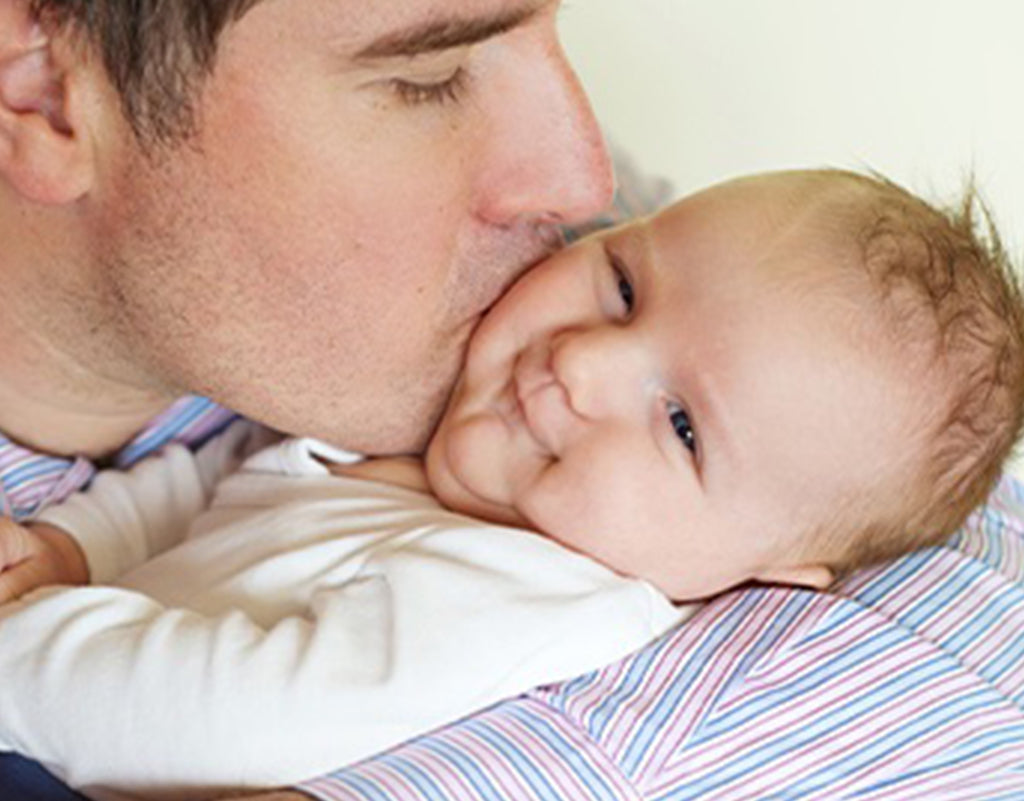
As we have seen in this article, there are several potential causes of newborn chapped lips. The good news is that it’s no emergency, and your baby’s dry lips will typically heal with time.
Provide gentle, natural care for their chapped lips through the tips we mentioned in this article: dabbing breast milk on their tiny lips, running a humidifier, applying our Nourishing Stick with Cold Cream, protecting them from the elements, and feeding your baby regularly.
If you have any particular concerns, consult your little one’s pediatrician. Otherwise, with the right TLC, your baby’s tiny lips will be back to their rosy, soft selves before you know it!

